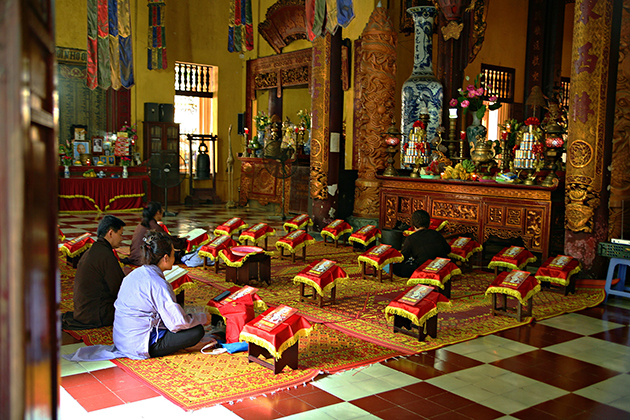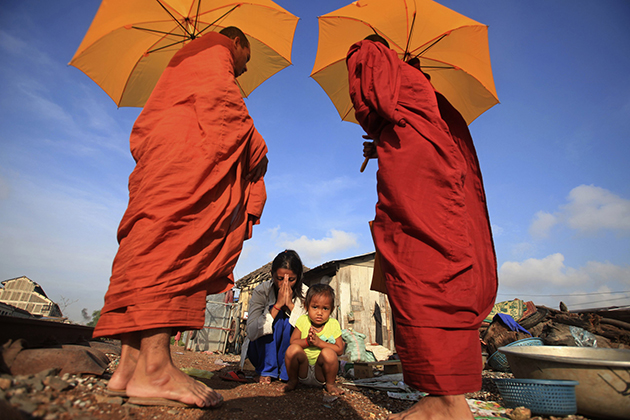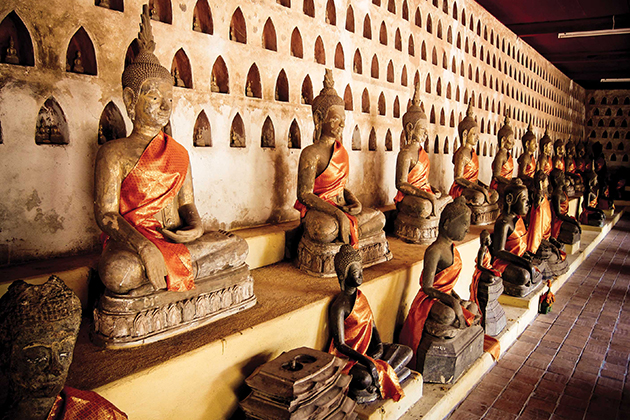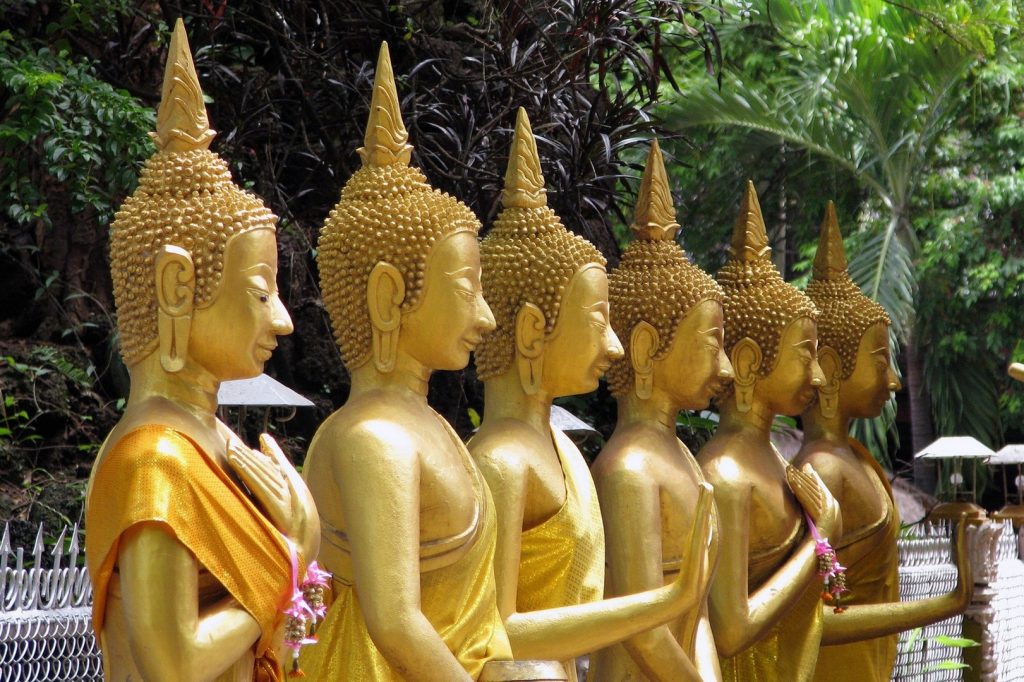VIETNAM – Mahayana Buddhism
Buddhism is the predominant religion in Vietnam, especially Mahayana Buddhism which is the most significant in Vietnamese religious life. The origin of Buddhism in Vietnam was from the second century B.C by the Chinese immigrants and the Indian clergies coming by sea. Under Ly dynastry (1010-1214), Buddhism became the state religion and Buddhist monks worked as counselors for the king. And at that time, the monks had great power and high position in the society.

Buddhism practices have a great impact on the thoughts and behaviors of the Vietnamese.
People believe in reincarnation and causal laws, which means that what they have today is the price for what you has done in the past.
Pagodas have been regarded by many Vietnamese as a spiritual refuge from burden of life. Here is also the accommodation of Buddhism monks where the Buddhism practices mainly take place.
CAMBODIA – Ghost and Buddhism
Buddhism in Cambodia has existed for nearly 2000 years through many successive kingdoms and empires. Today, Buddhists in Cambodia make up 95% of Cambodia’s population. The Cambodian’s attitude of Buddhism is quite relaxed. Many Cambodians don’t abstain from all of the Five Precepts of Buddhist beliefs but they still believe in reincarnation and causal laws.
Cambodian’s Buddhism version includes forms of ancestor worship, shamanism and animism. In almost Cambodian homes, people have small shrines or spirit houses to allay bad spirits and keep them away from their houses and minds. However, Buddhists in Cambodian still have faith in ghosts. There are a lot of folks about this.

Buddhist monks have played an important part of Cambodian life. They participate in all formal festivals, ceremonies, marriages and funerals. They are proficient in astrology and use it to find the best dates for important events. They act as teachers to temple servants and little monks because of their knowledge and behaviors.
LAOS – Strong influence of Buddhism
Buddhism has a strong force in Lao culture and remains significant influence in daily life. However, in the past, it took a while to be accepted by the ordinary Lao who didn’t want to give up their spirit beliefs.
Each ethnic Lao village owns a private temple also known as “wat” where village festivities and rituals are hold. People can find Buddhist images everywhere, in shops, homes and offices. For Lao people, Buddhism brings peace and joy in the harsh life. In the mornings and evenings, Wats are crowed with people chanting Buddhist prayers.

The most dominant organized religion in Lao is Theravada Buddhism with more than 4000 wats practicing this religious and the centre of community life in the rustic areas. Almost men spend a short time in temple as monks to study Buddhism before they marriage. After that time, many of them become monks for the rest of their life. Lao temples were considered as universities for monks. Here are place that they can receive Buddhist education. Monks in Laos have high position in communities. According to Buddhism, Lao women can attain Nirvana only when they have been reborn as men.
Exploring the rich tapestry of religious diversity across Indochina can offer profound insights and memorable experiences during your Cambodia tour or other Indochina countries tour. From the majestic Angkor Wat in Cambodia to the serene temples of Laos and Vietnam, embarking on a journey through this region unveils centuries-old traditions, architectural marvels, and spiritual practices that continue to shape the cultural landscape. Whether you're drawn to the tranquil ambiance of Buddhist pagodas or the intricate details of Hindu temples, your Indochina tour promises to be a deeply enriching and spiritually fulfilling adventure.



